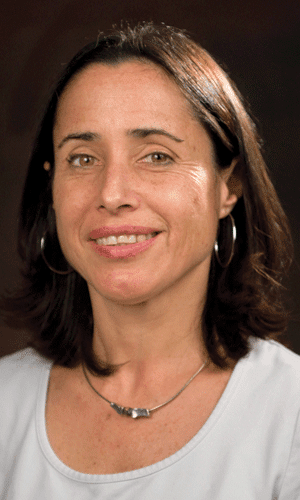Name: Judy Maltz
Position: Senior Lecturer in Journalism
Education: Bachelor of Arts, Barnard College/ Columbia University
Judy Maltz in the Penn Stater magazine
What do you teach?
I teach two sections of Reporting Methods, which is the advanced print journalism news reporting class, and one section of News Editing.
How did you come to Penn State?
My husband was hired as a tenure track faculty member, and I began working here as an adjunct. That eventually evolved into a full-time position, and today, I am a senior lecturer in journalism.
What jobs did you have that led to where you are now?
I worked for more than 20 years as a reporter, mainly in Israel, both for the local Israeli press and for the foreign press. During those years, I covered virtually everything possible and did everything from reporting on government to feature writing, from column writing to copy editing, and from page layout to night news editing.
In what way do you teach your passion for journalism?
I always try to draw on my real-world experiences in the classroom. Not only the successes, but also the botch-ups, because I feel it’s important for the students to know that we’re all human beings, and we all make mistakes, and the good thing about making mistakes is that we learn from them.
What has been your favorite piece to write as a journalist?
The Bedouin are a group of nomads who live in Israel. Among the Bedouin, it is forbidden for men to photograph woman. As a result, until quite recently, most Bedouin wedding albums featured only photographs of men – quite an anomaly, I’m sure most people would agree. Several years ago, when I was working as a reporter, I learned about an unusual initiative: a photography course for Bedouin women. The goal was to create a cadre of Bedouin women photographers who could photograph Bedouin weddings and finally get pictures of the brides. I did a big feature peace about the first women to take part in this course and loved absolutely every minute of it.
What is your dream job?
To work as a traveling food writer, sampling dishes around the world and being paid to do it.
How do your students teach you?
They teach me a lot about what life is like for college students in the 21st century and about the culture of young people today, and I happen to find that fascinating. I went to college many years ago, and things have changed dramatically since then.
What is one quote that is most significant to you? Why?
It’s a Talmudic quote: “He who saves one life, it is as though he has saved an entire world.” I love this quote, because it explains how I am here today. Had it not been for Francisca Halamajowa, the heroine of the film, I would most likely not be here today.
How did the production of the movie come into existence and then how did it get going?
We began working on the film in the summer of 2006, and we recieved lots of assistance from the College of Communications and from the Penn State Community.



